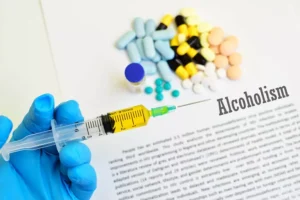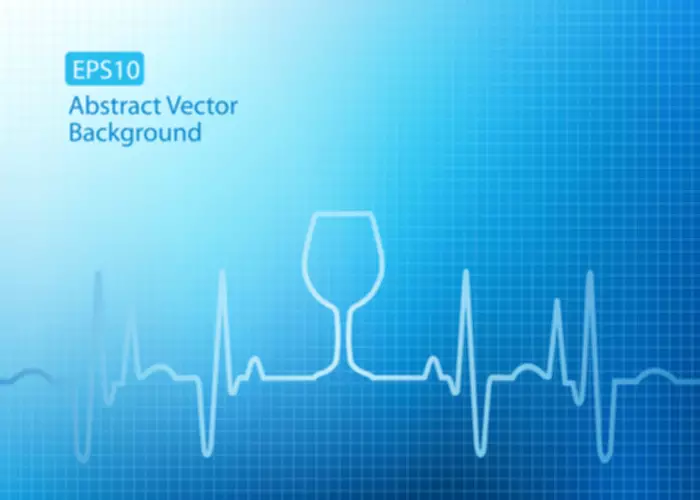
“Later on in the night, you may find someone crying or becoming overly emotional, and this is because, as the alcohol wears off, there is a big drop in serotonin below baseline,” Tietz explains. But effects to other neurotransmitters, including gamma-aminobutyric acid (GABA) and glutamine, may also be involved. Alcohol can impair the OFC, and disrupt communication between the OFC alcoholism and anger and the amygdala. Without the OFC doing its job of calming those intense emotions, a person can have a strong reaction (2). Alcohol’s ability to temporarily reduce anxiety can also intensify the urge to act on impulse. If you’re less worried about what others will think, or of any consequences, you could be more likely to have a strong reaction when something upsets you (2).
The Relationship Between Anger and Aggression
- Researchers don’t yet have a complete understanding of theprocesses that lead some to aggression, but they have identified certain typesof people who are more prone to alcohol-related aggression.
- The link between anger and alcoholism is cyclical—they can exacerbate each other if left unchecked.
- There can be negative thoughts or experiences when recovering alcoholics compare their old heavy drinking lifestyle to their new sober lifestyle.
- Repeated alcohol abuse as a coping mechanism increases the odds for developing problems related to alcohol, however.
An earlier study found that alcohol use enhanced aggression primarily among individuals who showed a heightened disposition for such behavior (Eckhardt and Crane, 2008). They assessed 70 participants who were divided into two groups. They were directed to engage in a task with the potential to trigger aggressive verbalizations, with those who consumed alcohol showing significantly more such behavior. Identifying those factors that might contribute to heightened anger when consuming alcohol is important for individuals who have anger issues and those who treat them. Increasingly, research offers answers to determine this interaction. Intimate partner violence is of great concern when it comes to alcohol and anger.

If You Know You’re an Angry Drunk, What Can You Do?

Additionally, repeated drinking may alter GABA receptors and even damage cells, causing reduced sensitivity to the body’s own relaxing neurotransmitter (8). Studies have shown that serotonin levels may begin decreasing within 30 minutes of that first drink (4). Plummeting serotonin levels hinder the brain’s ability to regulate anger and are linked to impulsive aggression (5).
For 24/7 Treatment
And a new study funded by the National Institutes of Health found that binge drinking among adults ages 35 to 50 has reached historic levels. If you see yourself in the description of the Four C’s or the behaviors connected to personality metamorphosis, talk to someone. Maybe it’s your doctor, another healthcare professional, a family member or friend, or someone in recovery. If your pattern of drinking results https://ecosoberhouse.com/ in repeated significant distress and problems functioning in your daily life, you likely have alcohol use disorder. However, even a mild disorder can escalate and lead to serious problems, so early treatment is important. Alcohol use disorder is a pattern of alcohol use that involves problems controlling your drinking, being preoccupied with alcohol or continuing to use alcohol even when it causes problems.
- This is not to say that alcohol causes aggression, or serves to makes someone angry, in and of itself; however, it may be a contributing factor when it comes to difficulties controlling these emotions.
- Intoxicated people may feel more outgoing, lonely, joyful — or angry.
- New research suggests the risks of even moderate or light drinking may outweigh the benefits.
- Once this happens, many end up thinking that their recovery is worthless, and they might decide to no more extended care about their recovery.
- There’s no better way to put it — properly addressing alcohol-fueled aggression is crucial for your well-being and relationships.

Feelings of anger can be so powerful that they cloud their judgment and second-guess their reasons for being sober. If you are concerned that you or someone you care about has a problem with alcohol there is a lot of help available. Here you can find useful links and phone numbers to get the support you need.
Drinking can have a relaxing or anxiety-relieving effect by mimicking the “chill-out” effects of GABA. At the same time, alcohol hinders the neurotransmitter glutamine, which has a stimulating effect. But once GABA is metabolized, it mostly converts to glutamine, causing excitement (6). Additionally, the amygdala area of the human brain is where we process emotions. And our orbitofrontal cortex (OFC), which is part of the PFC, helps calm feelings of rage and aggression.
- Below the surface, hidden emotions such as grief, fear, shame, and embarrassment often fuel anger.
- Aside from existing anger issues, people can turn into aggressors when drinking for several reasons.
- Without breaking this cycle, it can damage both you and those around you.
- And cutting down or stopping has lots of other benefits too, for your physical and mental health.
Seek Anger Management Support Groups
- If you feel that you sometimes drink too much alcohol, or your drinking is causing problems, or if your family is concerned about your drinking, talk with your health care provider.
- The answer may lie in social expectations that allow formore aggressive behaviors by drunk people.
- Expressive therapies provide healthy, and often nonverbal, outlets for the expression of negative and difficult emotions.
- Some people have a genetic variation of the serotonin 2B receptor gene HTR2B.


